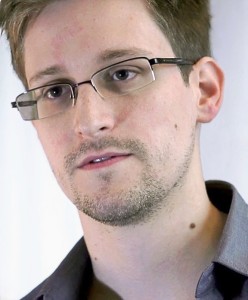If I had asked you on Sept. 10, 2001, to indicate on a map a country that assassinates its own citizens by remote control without due process, warehouses prisoners on a remote island to keep them out of reach of its judicial processes and monitors the telephone and email correspondence of all its people, chances are you would not have pointed your finger at the United States of America.
Yet in the 50 long seasons since the twin towers fell, we have gradually slipped into this state of affairs. Guantanamo, the Patriot Act, unmanned drones. That’s the price we have paid for a promise to keep us safe from that terrible threat. Last week, at long last, we may have begun to walk the road back to balance.
For years, the National Security Agency has been spying on you with the permission of Congress and the president. It knows who you call, how often and for how long you speak. Ditto for your email. Telecommunications companies are required to quietly hand over this information to the government. Furthermore, they are forbidden from telling you, should you inquire, that they have done so.
This state of affairs grew out of the deal with the devil that we timidly assented to in the fearful aftermath of 9/11. Not knowing exactly who the enemy was or where, we cast a wide net. Citizens handed over rights that we realize, only in hindsight, are essential to keeping us free.
And so, just recently, the ship of state in the Age of Terror began a slow turn toward a mid-course correction. The House of Representatives last week voted to change the way the NSA does business, to “rein in the dragnet collection of data by the National Security Agency (NSA) and other government agencies, increase transparency of the Foreign Intelligence Surveillance Court (FISC), provide businesses the ability to release information regarding FISA requests, and create an independent constitutional advocate to argue cases before the FISC.”
Reps. Richard Hanna (R-Barneveld) and Dan Maffei (D-Syracuse) voted against the law.
“Unfortunately, today’s legislation does not go far enough to protect the personal privacy of Americans, which is why I stood with a bipartisan group of lawmakers to oppose it,” Maffei said in a prepared statement. Hanna said the same.

A year ago, Edward Snowden was the new Osama bin Laden: public enemy No. 1. Sen. Dianne Feinstein (D-Calif.) called him a traitor. President Barack Obama vowed to hunt him down. Now Hanna and Maffei agree with Snowden that the national security state Snowden sought to expose is not the nation we wish to live in.
So why does Snowden remain exiled in Russia? None of the spying that Maffei and Hanna correctly seek to rein in would be public knowledge if Snowden had not told the world what he knew. There would have been no vote in the House last week without Snowden. Without Snowden, your phone company would routinely be shipping your phone records to Big Brother behind your back. Without Edward Snowden, we would be ignorant and less free.
So why compound the injury by continuing to persecute him? It’s time to drop the charges against Snowden, and to let him come home.
But, What About … ?
Well, what about the danger posed by people like Edward Snowden who expose secrets? Aren’t our people put in harm’s way when secrets are exposed?
This is a valid concern, which is why the media often take great pains when exposing stories to make sure that people are not needlessly put at risk.
In the year since Snowden spoke out about abuses of the Patriot Act, exactly one spy has been named, based on his revelations. That happened in January, when the New York Times posted a redacted document online, which a clever hacker was able to decipher.
The Bush administration, deliberately outed a spy: Valerie Plame, whose husband was a vocal critic of the war in Iraq.
Last week in Afghanistan, the White House press office issued a news release listing the officials who were briefing Obama during his stop at Bagram Air Force Base. The list included the name of the CIA station chief in Kabul. Oops.
So much for secrets.
Would We Hold a Parade?
Most would recoil at the thought of honoring a man who has been vilified as a traitor, but what did Snowden betray? He didn’t betray America, he betrayed a warped, frightened version of America that wrongfully, in a spasm of fear, turned over too much of our freedoms to the state. And he has sacrificed his life for that.
Last week, we marched through the streets to honor those whose sacrifices have kept us free. Snowden has given up all that was familiar to him to let us know we were in danger. He has done a great national service. Let’s bring him home. He doesn’t need a parade. But he does deserve our gratitude.

Sanity Fair is his weekly take on life, politics and society.



